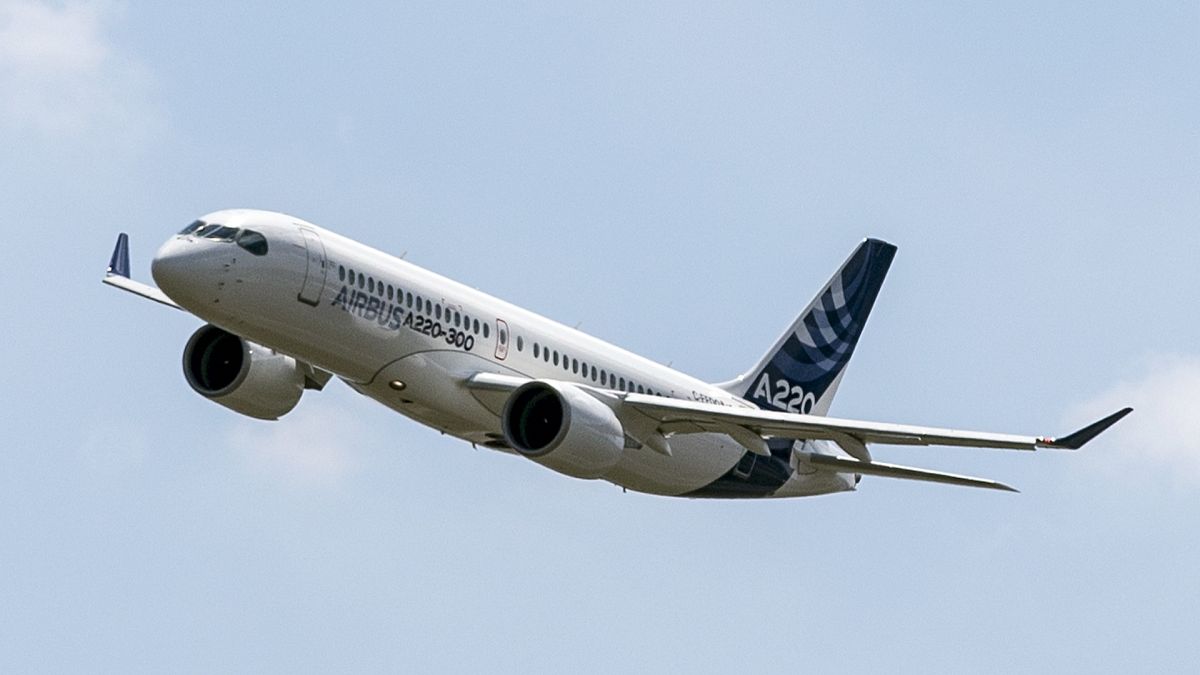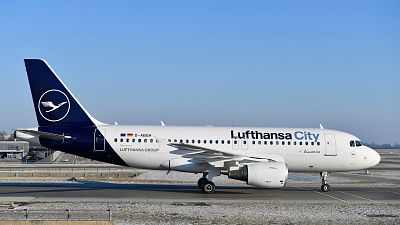Airbus' stocks plunge as aerospace manufacturer downgrades profit and production forecast for 2024 due to supply chain concerns.
Shares of Airbus tumbled 9.5% on Tuesday after Europe's biggest plane maker made an unscheduled announcement to cut its outlook for 2024.
The group expects to deliver 770 commercial aircraft this year, compared with the previously projected 880. Airbus has moved the target of producing 75 A320 family aircraft per month from 2026 to 2027. Additionally, it has decided to record a charge of around €0.9 billion for the first half of 2024 due to risks associated with certain telecommunications, navigation, and observation programmes. It has also reduced the forecast of free cash flow to €3.5 billion from the previously anticipated €4.0 billion.
Airbus stated that the commercial aircraft division "is facing persistent specific supply chain issues, mainly in engines, aerostructures, and cabin equipment". The updated projection estimates a profit of €5.5 billion, down from the previously estimated range of €6.5 billion to €7 billion. This represents an annual growth of 5%, down from the previously forecast 7% for 2024.
Airplane engines and parts face supply chain challenges
While the industry does not have a demand problem, the aerospace sector has been facing challenges because of supply chain disruptions since the 2020 pandemic, when air travel was halted worldwide. Manufacturers of automobile and aeroplane engines and parts were significantly affected during this period.
According to a report from The Air Current, the in-service commercial engine population fell to 41,000 by mid-2020, a third of the number in 2019. The supply chain issue has persisted for years. At the annual JetNet iQ Summit in New York last year, several industry professionals expressed concerns about the lack of repair capability, as this issue adds pressure on the supply of new parts.
Not only Airbus but also its rival Boeing faces the same challenges. The American aeroplane manufacturer has encountered a number of significant incidents relating to mechanical failure with its 737 aircraft over the past few years. Boeing has been in talks with AeroSystems, an American aerostructure supplier, to acquire the manufacturer at an all-cash deal, with the aim of improving the safety and quality of its parts. However, the deal may lead to a spin-off of some of its manufacturing plants to Airbus.
Airbus' stocks are in a technical correction
The plunge in Airbus shares has officially taken it into a technical correction. Its share prices have been in decline for the past three months after hitting an all-time high at the end of March, slumping by roughly 22% to €134.70 per share at market close on Tuesday. A 20% drop is defined as a technical correction in stock markets.
In April, the aerospace giant reported first-quarter earnings that missed market expectations, with an operating profit of €577 million, down 25% from a year ago. Airbus also announced it was hiring 10,000 new staff this year, pushing its headcount to above 150,000 for the first time. Its free cash flow decreased by €1.8 billion, "mainly reflecting the planned inventory build-up resulting from the execution of the ramp-up across programmes". However, analysts had expected a profit of €789 million and a reduction of €1.3 billion in cash flow.
On a positive note, Airbus is increasing production for the A350 jet to 12 units per month by 2028 due to the optimistic ordering outlooks.
In the earnings call, CEO Guillaume Faury said: "We delivered first quarter 2024 results against the backdrop of an operating environment that shows no sign of improvement. Geopolitical and supply chain tensions continue."















